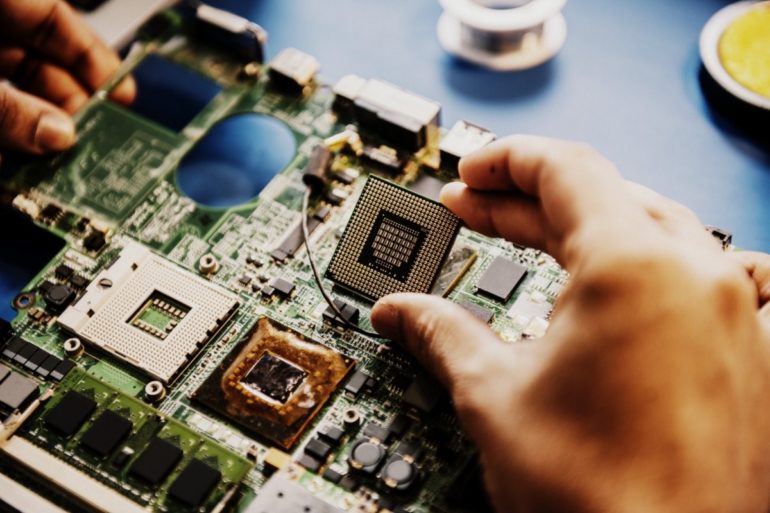So many acts in our daily lives -- refusing that second slice of cake, walking past the store with the latest gadgets, working on your tax forms when you'd rather watch TV -- seem to boil down to one essential ingredient: self-control.
While these creative or "Aha!" moments often are associated with scientific discoveries and inventions, most people occasionally feel the thrill of insight when a solution that had eluded them suddenly becomes obvious.
A high sense of control all but wipes out educational differences when it comes to mortality.
Individuals who live in wealthy neighborhoods are more likely to have materialistic values and poor spending habits, the study says, particularly if they are young, living in urban areas and relatively poor compared with their surroundings.
People who like to nap say it helps them focus their minds post a little shut eye. Now, a study may have found evidence to support that notion.
Find out how very realistic human-looking robots or computer avatars tend to elicit negative feelings in human observers.
Conventional wisdom tells us that in the business world, "you are who you know" -- your social background and professional networks outweigh talent when it comes to career success.
There are a number of factors that influence how well we do in school, including the amount of time we study and our interest in a subject.
Freedom and personal autonomy are more important to people's well-being than money, according to a meta-analysis of data from 63 countries.
Feeling sluggish? The solution may require getting outside the box -- that big brick-and-mortar box called a building.
Do you look fondly at the past, enjoy yourself in the present, and strive for future goals? If you hold these time perspectives simultaneously - and don't go overboard on any one of them - you're likely to be a happy person.
A polite act shows respect. But a new study of a common etiquette -- holding a door for someone -- suggests that courtesy may have a more practical, though unconscious, shared motivation: to reduce the work for those involved.
People have an easier time starting toward a goal than finishing it, but a shift in attention can make all the difference in reaching the finish line.
Extraversion does not just explain differences between how people act at social events. How extraverted you are may influence how the brain makes choices -- specifically whether you choose an immediate or delayed reward, according to a study.
Whether it's for money, marbles or chalk, the brains of reward-driven people keep their game faces on, helping them win at every step of the way. Surprisingly, they win most often when there is no reward.
Whether you are swimming in the Olympics or saving for a vacation, being able to see progress toward your goal will help you reach it.
In contrast to "every man for himself" interpretations of Charles Darwin's theory of evolution by natural selection, social scientists are building the case that humans are successful as a species precisely because of our nurturing, altruistic and compassionate traits.
When there are conflicting demands from work, home and the classroom, any hectic time can be filled with stress.
Self-employed male Britons have been found to work longer hours for lower wages than those of their employee counterparts. This...
With Mother's Day, Father's Day and high school and college graduations upcoming, there will be plenty of gift-giving and well wishes. When those start pouring in, let yourself be grateful -- it's the best way to achieve happiness.
Research suggests that overall happiness in life is more related to how much you are respected and admired by those around you, not to the status that comes from how much money you have stashed in your bank account.
Communities that stick together and do good for others cope better with crises and are happier for it.
Happily ever after isn't a given.
Procrastination is a curse, and a costly one. Putting things off leads not only to lost productivity but also to all sorts of hand wringing and regrets and damaged self-esteem. Are we programmed for postponement and delay?
A professor has recently published his magnum opus on the subject of procrastination - and it's only taken him 10 years.
American entrepreneurs pray more frequently, are more likely to see God as personal, and are more likely to attend services in congregations that encourage business and profit-making, according to a study by Baylor University scholars of business and sociology.
Studies reveal that in the dog-eat-dog, look-out-for-Number 1, highly-competitive business world, only the aggressive, risk-taking alpha male can expect to succeed as an entrepreneur.
"Decision making isn't always easy, and sometimes we make errors on seemingly trivial tasks, especially if multiple sources of information compete for our attention," said author Tobias Teichert, PhD.
Do peoples’ personalities change after 30?
In today's world, many are are engaged in wide, internet-based searches for seed money to launch entrepreneurial ventures. But what guidelines exist as to the best way to go about securing this kind of funding?


























